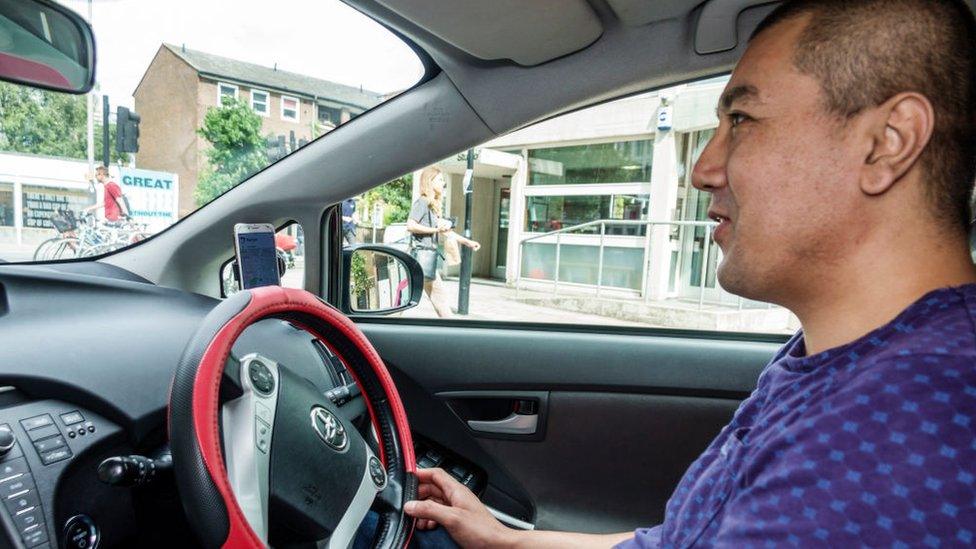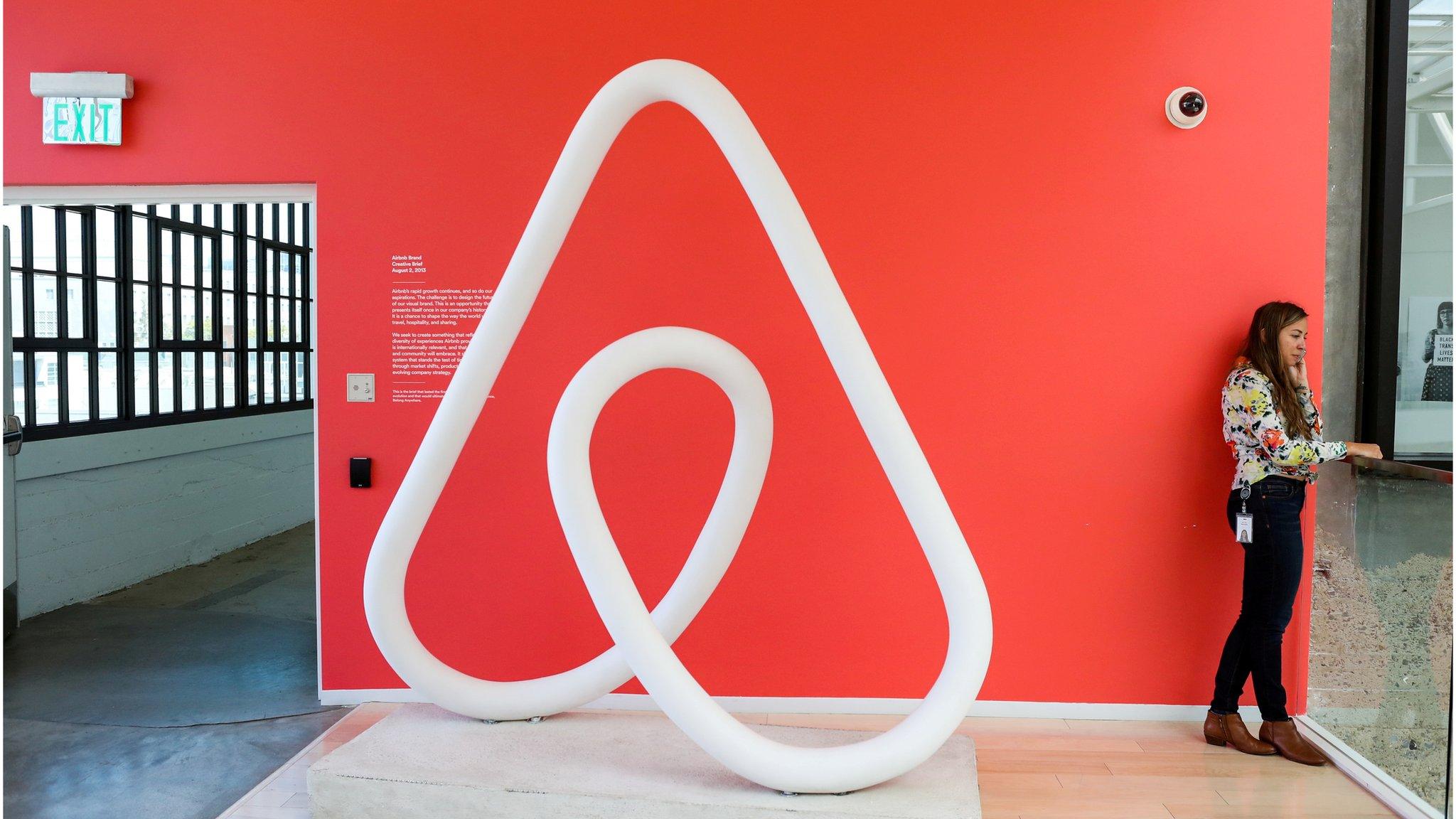Treasury eyes VAT charges for gig economy firms
- Published

The Treasury is looking at ways of taxing services provided by gig economy firms such as Uber, Airbnb and TaskRabbit.
It is concerned that tax rules are not up-to-date enough to cover these type of tech platforms.
The gig economy has grown rapidly and is expected to be worth £140bn by 2025.
Not charging VAT means the the Treasury loses out on revenue, at a time when it is facing a huge hole in public finances due to the coronavirus crisis.
However, its concerns about the "sharing economy" predate the start of the pandemic.
On Thursday, the Treasury published a consultation paper called VAT and the Sharing Economy, external to call for feedback on the issue.
When self-employed contractors carry out the service booked on a platform such as Uber, Airbnb or Task Rabbit, they often individually fall below the £85,000 VAT registration threshold.
But if they were employees and the service was provided by the platform company, consumers would have to pay the tax.
Level playing field
The review is part of the government's aim of "ensuring fair competition and a level playing field for all businesses, whether operating in the sharing economy or as a traditional business, regardless of their size and location".
Based on the predicted size of the gig economy by 2025, it would equate to a loss of up to £28bn a year in VAT for the Treasury.
The consultation document highlighted examples of the business practices it wanted to investigate for action where "no VAT [was] being charged where it might have been in the traditional economy".
These included car-booking rides where "the drivers at this firm are all self-employed".
The Treasury added that the review was designed to "test the government's view of the VAT challenges the sharing economy creates".
Last month's spending review by the Office for Budget Responsibility revealed there was a £40bn a year hole in the public finances.
Sharing economy
Another issue is defining what is consider part of the sharing economy as definitions differ.
The Treasury says it should cover "any digital platform which facilitates the supply of services between two or more unconnected parties."
This would include labour for household repairs, renting out an apartment and a driver offering passenger transport using their personal car.
Related topics
- Published7 December 2020

- Published16 November 2020
